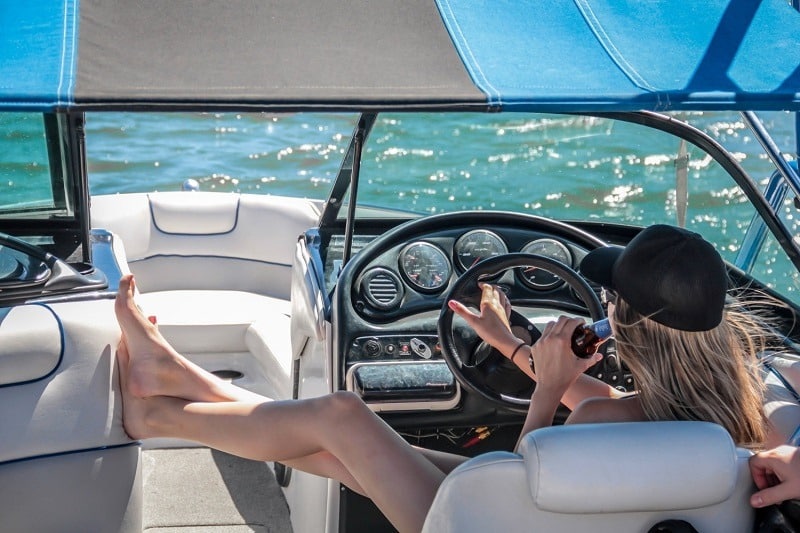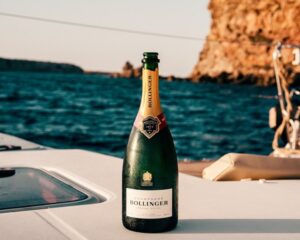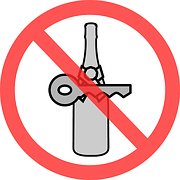What is Boating Under The Influence in Maryland?

A seasoned DUI / DWI attorney Attorney Eric T. Kirk will tell you, the crime and the consequences are the same as DUI, except, with a few notable exceptions, you’re in a boat, not a car. If you are operating a boat under the influence, you are in a lot of trouble. The standards and legal principles that govern boating while under the influence [BUI] are essentially the same as those that dictate the outcome of a Maryland driving while under the influence charge.
The legal limit is the same [.08 BAC or higher]. The penalties are the same.
Just as Maryland law [as well as the respective law of all states] bans driving a car while under the influence of alcohol or drugs, Maryland Law [as well as the respective law1 of all states] prohibits the operation or attempted operation of a boat while a person:
-
Is impaired.
-
Is under the influence of alcohol.
-
Is so far under the influence of any drug, combination of drugs, or combination of drugs and alcohol that the person cannot operate a vessel safely, OR
-
Is under the influence of any controlled dangerous substance, as defined in the Digest of Criminal Laws, Natural Resources Article 8-738.
[http://dnr.maryland.gov/boating/Documents/recrea$500 fine ionvessels.pdf’]
Similarity Between Maryland DUI and Maryland BUI Laws
Practiced Maryland DUI / DWI attorneys have often been able to successfully beat a charge, arguing that act of pulling over the motorist, the “stop” of the motorist, was “illegal” [i.e. not based on reasonable suspicion that criminal activity was afoot, or that a rule of the road was violated]. These arguments are often premised on the contention that the observations of the officer did not support a reasonable inference that the operator was impaired. In that regard, the National Highway Traffic Safety Administration publishes a list of observations, or factors, that it describes as a “set of behaviors that can be used by officers to detect motorists who are likely to be driving while impaired.” NHTSA contends that the list is scientifically supported, and predicts those that may be operating with a varying, but high degree of accuracy.

Those factors include: “Weaving, Problems Maintaining Proper Lane Position, Weaving across lane lines or a lane line, Swerving, Turning with a wide radius, Drifting, Almost striking a vehicle or other object, Speed and Braking Problems, Stopping problems (too far, too short, or too jerky), Accelerating or decelerating for no apparent reason ,Varying speed, Slow speed (10+ mph under limit), Vigilance Problems, Driving in opposing lanes or wrong way on one-way, Slow response to traffic signals, Slow or failure to respond to officer’s signals, Stopping in lane for no apparent reason, Driving without headlights at night, Failure to signal or signal inconsistent with action Judgment Problems, Following too closely, Improper or unsafe lane change, Illegal or improper turn (too fast, jerky, sharp, etc.), Driving on other than the designated roadway, Stopping inappropriately in response to officer, Inappropriate or unusual behavior (throwing, arguing, etc.), Appearing to be impaired, Difficulty with motor vehicle controls, Difficulty exiting the vehicle, Fumbling with driver’s license or registration, Repeating questions or comments, Swaying, unsteady, or balance problems, Leaning on the vehicle or other object, Slurred speech, Slow to respond to officer or officer must repeat, Providing incorrect information, changes answers, Odor of alcoholic beverage from the driver, Driving without headlights at night, Failure to signal or signal inconsistent with action.” Source: DOT HS 808 677.
Perhaps not surprisingly, seasoned Maryland DUI defense attorneys have successfully argued that these factors, even when they exist in combination, are fully consistent with innocent behavior, with a cause, if indeed there is a cause, completely unrelated to impairment. Clearly, these factors have been developed in relation to driving under the influence, but many have equal applicability to a boating while intoxicated scenario. In a DUI case, if this challenge to the “stop” is successful, a court may rule that any evidence obtained as a result of that illegal roadside stop is inadmissible at trial. In a DUI case, that evidence will typically be the officer’s observations, any field sobriety tests, and any breathalyzer or blood alcohol concentration test results. This line of argument may not be available in boating cases. The grounds to stop a boater are not as restrictive, and law enforcement does not need to articulate the same reasons as they would to justify the stopping of a motorist.
Breathalyzer for Maryland BUI Arrestees?
As with Maryland’s DUI laws, Maryland boaters, have likewise given consent to a test for intoxication. Section 8-738 of the Natural Resources Article provides:
“Any person who operates or attempts to operate a vessel on the waters of the State is deemed to have consented, …to take a test…. if the person is detained by a police officer who has reasonable grounds to believe that the person has been operating or attempting to operate a vessel while under the influence of alcohol, while impaired by alcohol, while so far impaired by any drug, any combination of drugs, or a combination of one or more drugs and alcohol that the person could not operate the vessel safely, or while impaired by a controlled dangerous substance.”
The test referenced is likely a breathalyzer that would be used in a Maryland DUI investigation. In the absence of an accident, the boater alleged to be intoxicated cannot be compelled to submit to any testing. Here again, there exists another similarity with Maryland’s DUI cases. If the boater is subsequently charged with boating while intoxicated, “on receipt of a sworn statement from the officer that the person was requested to take a test and refused, the court may, on conviction and in addition to other penalties, prohibit the person from operating a vessel on the waters of the State for up to 1 year.” See 8-738 of the Natural Resources Article. The Court can also prohibit the person from operating a boat for up to a year where the BAC was .08 or higher. Here, there appears to be a dissimilarity between Maryland’s DUI and BUI laws. In the DUI scenario, a refusal to take a lawfully required test leads to an immediate suspension of one’s driver’s license by the MVA. The suspension is an administrative process, and exists independently of, and is indeed separate from the criminal prosecution for a DUI. In the BUI scenario, there does not appear to be an analogous administrative consequence for a failure to submit to testing. In the absence of any penalty for a failure to submit to test in the absence of conviction, it may make little sense to provide the State with evidence upon which a conviction may be premised.
Compelled Testing the Wake of a BUI-Involved Boating Accident
If there is a significant boating accident involving injury, submission to a test can be compelled. Where “a person is involved in an accident while operating or attempting to operate a vessel that results in the death of, or a life-threatening injury to, another person and the person is detained by a police officer who has reasonable grounds to believe that the person has been operating a vessel or attempting to operate a vessel” while under the influence or impaired, that boater can be compelled to submit both a blood test and a breath test. See Section 8-738.1 of the Natural Resources Article.
FN1 Interestingly, although the overwhelming majority of states appear to have adopted a blood alcohol concentration for .08 or more as intoxication per se [i.e. it is conclusively presumed that one with the BAC is impaired and cannot drive, or boat] North Dakota still adheres to the prior .10 BAC standard. See https://gf.nd.gov/boating/safety-regulations#prohibited-operation , and Wyoming only recently decreased their per se limit from .08 from the prior .10 standard. See https://oilcity.news/general/2019/07/01/fire-departments-conduct-multi-agency-training-photos/




